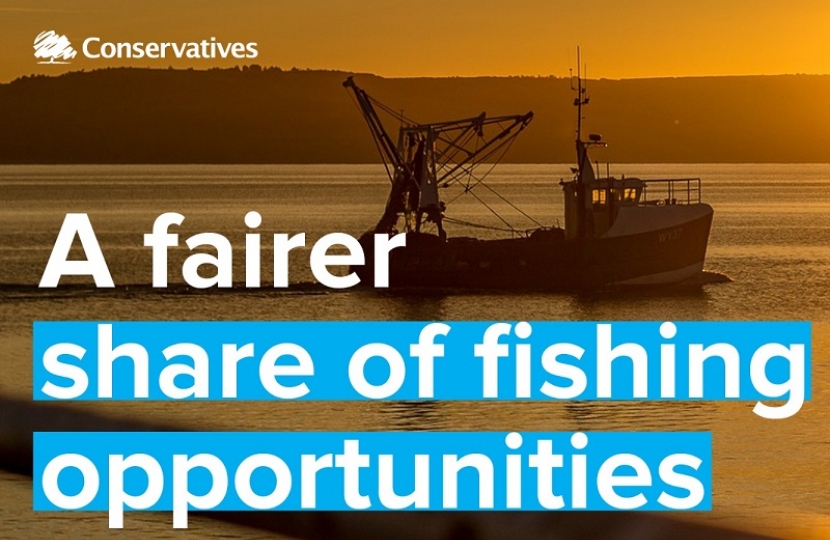
Today, the Government set out its plan for how the UK will take back control of our waters and ensure stocks are fished sustainably.
Currently, the UK is permitted to fish less than 50% of the fish within our own territory whilst European fisherman overfish our waters meaning our stock is depleting. We can do so much better than this by taking back control of our waters and preserving our fish and marine life through a sensible British fishing policy.
As we leave the European Union, we will have the opportunity to move towards a fairer and more sustainable system that supports our fishermen, revitalises coastal communities and protects our marine environment so that we can build a fishing industry for future generations.
A blueprint for a sustainable and profitable fishing industry that will regenerate coastal communities and support future generations of fishermen has been set out today.
Outside the EU, the UK will be an independent coastal state and will regain control of our waters and natural resources, as well as the flexibility to negotiate with other countries and ensure stocks are fished sustainably.
The Fisheries White Paper - ‘Sustainable Fisheries for Future Generations’ – charts our course for managing fisheries after Brexit. It outlines how powers to be proposed in the Fisheries Bill, which will be introduced in this session of Parliament, will give the UK full control of its waters and the ability to set fishing opportunities such as quota.
In particular the paper sets out how, as an independent coastal state, the UK will have the opportunity to move towards a fairer share of fishing opportunities - overhauling the current system where UK fishermen have received a poor deal that is based on fishing patterns from the 1970s. EU Member States currently land around eight times as much fish in UK waters than the UK does in EU Member States’ waters.
It also proposes a suite of measures to improve the sustainability of the fishing industry, supporting the next generation of fishermen while protecting our precious marine environment.
The white paper sets out a number of methods to explore fairer allocation of fishing opportunities, such as zonal attachment – which is based on distribution of fish stocks, rather than historical data.
Sitting at the heart of the white paper is the UK government’s commitment to sustainable fisheries, including ending the wasteful discarding of fish and making clear vessels will only be allowed to fish in our waters if they adhere to our high sustainability standards.
And, as set out in its 25 Year Environment Plan, the government will pursue an ecosystem approach to fisheries management that will minimise impacts on non-commercial species and the marine environment.

